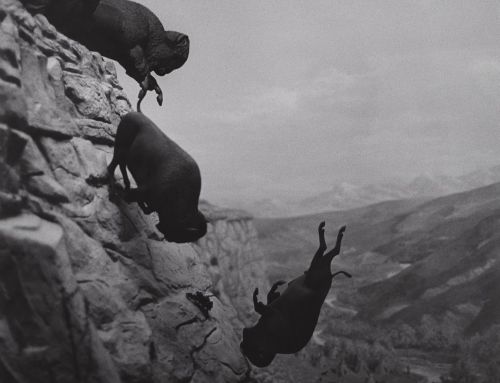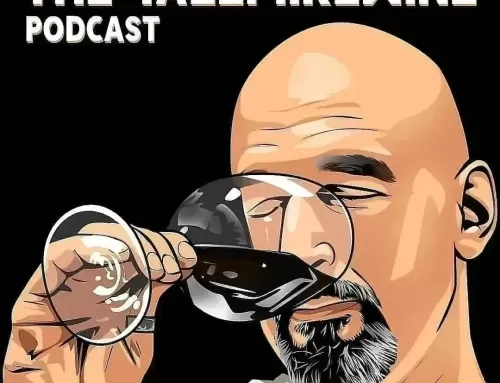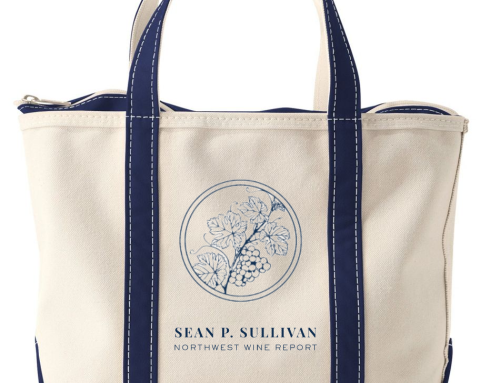
With its passage, Initiative 1183 closes state liquor stores, privatizes liquor distribution and sales, permits volume discounting for wine and spirits, and allows central warehousing. These changes will happen on the following timeline.
Private sales of spirits for distributors can commence March 1, 2012. Private sales of spirits for retailers can commence on June 1, 2012. The Liquor Control Board (LCB) must close state liquor stores no later than June 1, 2012. Between now and May 31, 2012, the LCB must devote sufficient resources to depleting all of its existing inventory. It must finish all other asset sales by June 1, 2013. The board must also auction off the right to operate each of the present liquor stores.
I do not see specific language regarding the commencement of volume discounting and central warehousing. My expectation is that both would be able to commence immediately.
As I have written previously, expect this initiative to have a significant impact upon the Washington wine industry. Time will tell exactly how these changes play out. However, to wineries that had concerns about the passage of this initiative, the time is now to determine how this affects your production, sales, and marketing approaches and adjust them accordingly. Volume discounting is now the law of the land.







The wide margin by which the initiative passed is surprising. It is a clear indication that the voters favored ending state liquor stores. The state legislature abdicated its responsibility by failing to act on this issue. Instead, it came up with an absurd proposal to turn wholesale distribution over to a private monopoly.
don't forget about the franchise clause as well…slippery slope.
I agree, this is the time to take a very hard look at how the market in WA is going to change over the next year and plan accordingly.
Rand, I think the so-called 'Protect Our Communities' group, which I always preferred to call The Abolitionists, ran a textbook campaign on how to lose an election. In contrast, Costco spent its money well.
Costco researched why Initiative 1100 lost and adjusted accordingly. For its latest Citizens Initiative, they came up with a divide and conquer approach, removing certain powerful opposition groups (for example, by removing the provision for beer volume sales) and leaving a less powerful, disparate group. That group was unable to coalesce around a single theme.
To wit, Washington wineries were about 75-80% against 1100. Although the majority of winery owners I spoke with this time around were against 1183, the percentage was far less and these people were much, much less vocal this time around. While most small retail wine stores were against the initiative, most didn't get involved until late in the game and were unable to get their concerns heard in the roar of advertising. Meanwhile, most consumers I spoke with were completely unaware of the wine related changes in the initiative thinking it was simply about privatization.
In contrast, The Abolitionists used almost the *exact same approach* that they had against Initiative 1100, trotting out firemen and policemen and talking about the ills of alcohol. However, without spirits at every convenience store and gas station, this now seemed even more hollow and cynical than it did last time around. In the midst of the largest anti-corporate uprising in more than a generation, when Bank of America and other corporate giants blinked, this group failed to harness that sentiment, only turning to this theme late in the game when it seemed, again, hollow and cynical.
I expected Initiative 1183 to pass decisively. However, the 60% number is, I believe, as much a response to the advertising campaign as the issues involved. Protect Our Communities turned a lot of undecided votes into 'yes' votes, evoking a visceral response in many rather than one based on issues. While I was and remain adamantly opposed to the wine-related changes contained in 1183 as believe they benefit large corporations at the expense of small businesses, I can't help but admire how Costco used its buying power on this one. It will be interesting to see what the next one looks like and what the future brings for the industry.
Sean, the point I was trying to make is that in the absence of legislative action, the only other course to make change happen is through initiatives. That takes lots of money, and these get financed by special interests. Consequently, they get skewed in favor of those special interests. There was a bipartisan bill in the last legislature that would have privatized wholesaling and retailing, but leaving most of the existing three tier system and regulations intact. But the powers that be in Olympia let the bill die in committee and instead came up with the proposal to turn the distribution over to a private contractor, but keep the state stores intact.
I agree that the passage of Initiative 1183 was largely due to Costco's money and the hypocritical "Protect our Communities" campaign. But it is also a result of the legislature's abdication of its responsibilities.
As for the future, there will need to be changes in marketing on the part of the wine industry. But I do believe that those wineries that make quality wine will continue to do well. Also wine shops will continue to do well as they offer the wines the big box stores and supermarkets won't be carrying.
Rand, one of the reasons I was originally leaning toward supporting 1183 was that I found the legislature's continued lack of responsiveness more than a little frustrating. While Initiative 1183 was filed quickly after the failure of 1100, the legislature did have a chance to act and did not as you have indicated. Worse, SB 5942 was probably the only way I could envision taking a bad situation and making it worse, replacing a poorly run government monopoly with a private one with a long-term contract.
It's hard on the one hand say that the legislature is ineffective and incapable of making change and then say on the other that we need them to change these new laws to make them right. However, I do sincerely hope they quickly take up the issue of allowing small wine and beer stores to sell spirits. While this will put an even larger squeeze on the Washington wine industry due to an additional decrease in shelf space, it will be critical if these retailers are to remain competitive and only makes sense. I should note that this could have very, very easily been written into 1183. It was not.
Ultimately I believe that if Citizens Initiatives sponsored by corporate interests are the only way to effect change in this state, we are all serious trouble. It is not just the legislature that is broken. It is us as a society. The legislature and initiative process are merely reflections of this.
Sean, unfortunately, these days the legislative process whether it is by elected Senators and Representatives or by Initiatives is driven by special interests. Over the decades, I have seen liquor privatization initiatives come and go. The only real "citizens initiative" was in 1972, by private individuals who had no interest in any part of the liquor and wine industry except that they felt the state should not be in the liquor business. The spirits industry bankrolled the campaign against the initiative because they preferred the monopoly system which limits competition. In the late '80's there was an initiative pushed by Safeway that would put liquor only in supermarkets. An initiative of the supermarkets, by the supermarkets, for the supermarkets. But it didn't make it to the ballot. Bills to privatize liquor have been introduced legislative session after legislative session, only to be left to die in committee. Yes, the process is broken.
But, I do believe change, rather than the status quo, is a necessity, however messy or incompletely satisfactory it is. I believe in the long run this will benefit the wine industry because it will present the opportunity for those who deal with the new system creatively to move forward.
Rand, for me, the conclusion of a presentation by the Washington Secretary of State's office analyzing spending on the 2010 initiatives says it all. It reads:
"The citizen initiative was once seen as a remedy for the domination of industry and other powerful interests over the legislative process. Today, contribution and expenditure reports filed with the PDC reveal that these same well‐funded interests—corporations, unions, trade and professional associations—use paid signature gatherers to accomplish their goals."
Rand , I really appreciate your wisdom in this process. Yes, Costco spent a lot of money on this initiative… however the Voters are much smarter than the anti free market NEH Sayers give us credit for…let free market competition work! Congratulations to the Voters of WA State and let's see which States follow next!? After all I believe most of the Money Spent on No for 1183 was from Multi State Distributors that were only protecting their self interest for a 3 Tier System…where are those facts reported? Costco is a Private Club that takes care of their Members/ Customers first at a Very Low Margin… this is the reason they are successful…
Regarding my earlier comment about the 10,000 square foot requirement not allowing small wine and beer retailers to sell spirits, RCW 66.24.371 stipulates a beer and/or wine specialty store license. An updating of this code to allow for the sale of spirits at stores with this license would have allowed these stores to sell spirits. The other stipulations of this license would have made it virtually impossible for convenience stores and gas stations to qualify. Surely this could have been included somewhere in a 60 page initiative document?
Sean –
While I agree smaller specialty beer and wine stores should be allowed to sell liquor (maybe granted on a case by base basis?) but I'm not following on how 1183 hurts them.
Currently people who want liquor go to the state liquor store, in the future they will go to Safeway. How do they loose customers they currently have?
Could you elaborate please?
Hi Dustin, I wrote a few thoughts on this previously here:
http://www.wawinereport.com/2011/11/how-initiative-1183-would-negatively.html
The issue is really one of convenience. Now that people are able to buy food, wine, beer, and spirits in the same place, will enough people continue to make a special stop at the wine store to sustain these businesses or will this bleed enough customers away to hurt them? Who knows. Time will tell.
I will say that the main differentiators these businesses have is selling boutique products that aren't available at most grocery stores. However, they are unable to do that for spirits which makes it harder for them to separate themselves.
I'll give you a local example that is a slight variation. In Seattle, Wallingford has two wine stores within a half mile. One is City Cellars, a small boutique store. The second is Wine World Warehouse, a very large boutique store at 21,000 square feet. Thus far, these two stores have been able to coexist despite their proximity. However, Wine World will now be able to sell spirits. City Cellars will not. Will this make people who drink wine and spirits more likely to go to Wine World and less likely to go to City Cellars? You bet.
Many people have said Costco had to include the 10,000 square foot restriction to answer the concern about convenience stores and gas stations. That is categorically not true. It could have been written into the initiative based on business license as indicated above.
Word on the street is that one of the big-box liquor chains is poised to move into the state next year. I talked to someone who's contacted them about a job, and he says they have seven stores scouted out in the Seattle metro area already. I would expect them to be open the first week of June actually. For reasons Sean outlines above, I would guess that they'll take substantial business from any small store in their trade area, and the trade area of such a store is pretty large.
I've talked to a couple of my distributors about volume pricing this week, and gotten responses ranging from "hell no, we aren't doing any deals!" to "your prices are going up."
The most interesting of the responses was from a large importer's rep. He said that the Seattle market has been spoiled all these years by uniform pricing, where I could buy one bottle at the same price the large retailers could buy ten cases. He said that although he hasn't thought through new pricing yet, he was leaning towards making the new three-case price the same as the current single-bottle price. There are plenty of brands that even the largest retailers are not buying three cases of, so I would take that to mean that lots of small-production wine prices are going up for everyone, in his book at least.
To be fair, I haven't yet talked to some of the distributors that have historically worked hard to help out the small retailer. I expect at least some of them to work with us to keep our prices in check. I'll no doubt move a lot of my purchasing to the distributors that work with me. I'll have less to choose from, at least at a reasonable price, but there should still be enough choices that I can offer a decent selection to our customers.
Dave E, interesting stuff! I'd love to contact the company in question and/or your friend for a potential story. Pop me an email at [email protected] if interested. If not no worries.